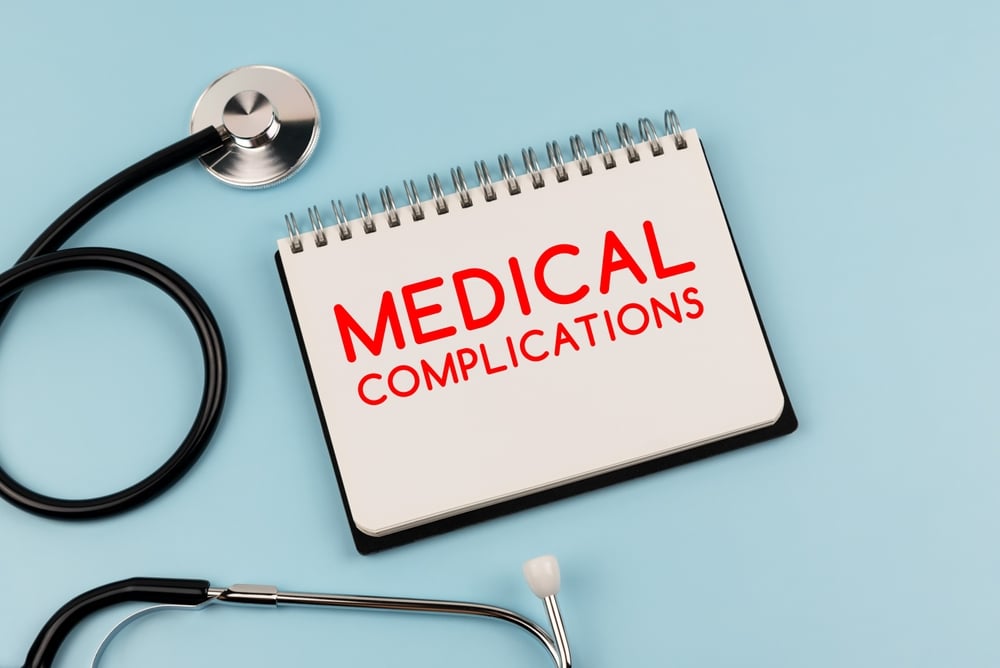
Combining Semaglutide with Other Medications: What’s Safe?
Are you thinking about trying semaglutide for weight loss? It is extremely important to know how it interacts with your present drugs.
To make sure your treatment is safe and successful, we will provide you with important information to help you deal with possible drug interactions. Taking blood thinners or managing a problem like diabetes? Or would you just like to make smart choices about your health? This article presents insightful analysis of semaglutide medication interactions.
Let’s discuss how to safely include semaglutide into your plan to help you meet your wellness objectives.

Understanding Semaglutide Drug Interactions
Semaglutide is a groundbreaking medication classified as a glucagon-like peptide-1 (GLP-1) receptor agonist.
Approved by the FDA under three brands— Ozempic, Wegovy, and Rybelsus—it plays a key role in managing type 2 diabetes, chronic weight issues, and cardiovascular risks. Each formulation is made to meet specific medical needs, which makes it a flexible choice in today’s healthcare.
The way this drug acts is complex. Semaglutide, a GLP-1 receptor agonist, mimics the incretin hormone GLP-1, therefore increasing insulin output at high blood sugar levels. It also slows stomach emptying and reduces glucagon release, a hormone raising blood sugar.
These taken together help to manage blood sugar levels and encourage weight loss; yet, they also call for cautious monitoring for possible drug interactions. The way semaglutide affects stomach emptying is one crucial aspect of its activity. This can change the way your body absorbs other drugs, affecting their efficacy.
For example, the risk of hypoglycemia rises when taken in concert with medications that also lower blood sugar. Such interactions combine medication efficacy with safety by careful design. The wide impacts of semaglutide go beyond control of blood sugar. For those with several health issues, it can help with cardiovascular health, so it is a useful tool.
But given this extensive interaction profile, it’s imperative to know how other medications might either influence or be influenced by the medicine. Good semaglutide treatment requires cooperation. To maximize results and reduce risks, regular monitoring, exact dosage scheduling, and honest communication with healthcare practitioners help.
Patients and physicians can cooperate to produce safer, more effective results by keeping educated on how semaglutide interacts with drugs and body systems. When it comes to semaglutide, every choice should be based on one goal: improving health while keeping people safe. Clear knowledge of its mechanics and interconnections helps patients to confidently negotiate their treatment path.
At Regenics, we prioritize your safety through personalized medication management and comprehensive interaction screening. Our experienced healthcare team provides detailed medication reviews, ongoing monitoring, and individualized treatment adjustments to ensure optimal results with semaglutide therapy.
Major Drug Interactions with Semaglutide
If you are using semaglutide to ensure you stay safe and maximize your treatment, knowing about possible drug interactions is truly crucial. There are some medicines that need extra care and attention when they are taken with semaglutide. Let’s look at the most important exchanges you should know about.
Diabetes Medications and Insulin Interactions
The most substantial interactions take place with other diabetic drugs, including insulin and insulin secretagogues.
Semaglutide greatly raises the risk of hypoglycemia when taken with insulin or sulfonylureas. If you take these medications, your doctor might have to change your dosages to stop potentially fatal blood sugar level decreases.
Blood Thinners and Cardiovascular Medications
Although semaglutide and anticoagulants have no direct interaction, people on warfarin, a blood thinner, need close observation.
Appropriate blood-thinning effects depend on regular INR, or international normalized ratio, testing. Studies indicate that semaglutide has no appreciable effect on the pharmacokinetics of warfarin, however individual responses could vary.
Thyroid Medication Considerations
Semaglutide can increase serum concentrations of levothyroxine.
Additionally, it’s strictly contraindicated in patients with a personal or family history of medullary thyroid carcinoma (MTC) or Multiple Endocrine Neoplasia syndrome type 2 (MEN 2). If you’re taking thyroid medications, your healthcare provider should monitor your thyroid levels closely.
Opioid Pain Relievers
Both drugs can influence gastrointestinal activity even though direct interactions with opioids are rare. The mix could aggravate typical side effects including constipation or nausea. Your doctor should check you for more gastrointestinal problems and could have to change your medicine schedule.
Antibiotics
When taken with semaglutide, some antibiotics—especially fluoroquinolones—may alter blood sugar levels and perhaps complicate diabetes treatment.
These antibiotics could induce both hypoglycemia and hyperglycemia, hence cautious blood sugar monitoring is highly recommended throughout antibiotic treatment.
Antidepressants
Using selective serotonin reuptake inhibitors (SSRIs) together with semaglutide calls for particular consideration. Both drugs can change appetite and gastrointestinal motility. Drugs such selective serotonin reuptake inhibitors might enhance the effects of semaglutide and thereby raise the side effect risk.
Other GLP-1 Receptor Agonists
It is not recommended to use semaglutide with other GLP-1 receptor agonists, such as liraglutide or dulaglutide.
Excessive GLP-1 receptor activation resulting from this mix increases the likelihood of side effects along with potential serious complications. Your healthcare provider should ensure you’re not taking multiple GLP-1 receptor agonists simultaneously.
Moderate Drug Interactions and Management Strategies
Semaglutide’s influence on gastrointestinal motility and pH levels can lead to various moderate drug interactions that, while manageable, require careful monitoring and potential adjustments. Understanding these interactions is crucial for maintaining the effectiveness of both semaglutide and concurrent medications.
Oral Medications
Semaglutide slows down stomach emptying, which can influence the way your body absorbs oral drugs. This delay may lower the efficacy of time-sensitive medications depending on quick absorption, thereby possibly requiring changes in dosage or timing.
Birth Control Considerations
The changed absorption brought on by semaglutide could affect how well oral contraceptives work. While direct data is scarce, this interaction could lower the effectiveness of contraceptives, therefore raising the risk of unwanted pregnancy.
Statins and Cholesterol Medications
Interactions with statins such as atorvastatin can arise since semaglutide might change their absorption and metabolism. This can alter your body’s statin level, so influencing cholesterol control and increasing your chance of adverse effects.
Digoxin Interactions
By decreasing stomach emptying, semaglutide could change digoxin absorption. Changes in digoxin levels brought on by this modification increase the risk of toxicity or lessen its efficacy in treating cardiac diseases.
Anti-Seizure Medications
By affecting drug absorption, semaglutide can alter serum levels of anti-seizure medications. This interaction might compromise seizure control, requiring vigilant monitoring to maintain therapeutic drug levels.
Common Prescription Considerations
Taken with semaglutide, drugs including prednisone, albuterol, and furosemide could have their absorption compromised. These alterations can affect its effectiveness, so the dosage or timing of administration may have to be revised.
Lifestyle and Substance Interactions
It isn’t just drug interaction you should be worried about but also need consideration around lifestyle and substance interactions.
Alcohol Consumption Guidelines
You should especially watch your alcohol intake while using semaglutide.
Alcohol can greatly raise your risk of hypoglycemia and might affect the way your body breaks down the medicine. If you decide to drink, keep your intake under reasonable limits; women should limit one drink day and males two. On days when you drink alcohol, keep very close eye on your blood sugar levels.
Dietary Considerations and Timing
Dietary habits also influence semaglutide’s efficacy.
A balanced diet with whole foods, vegetables, fruits, and lean proteins is recommended, while sugary and refined carbohydrate-heavy foods should be minimized. Consistency in meal timing and weekly medication administration helps maintain stable drug levels. Eating after administration may also alleviate gastrointestinal discomfort.
Supplement and Herbal Interaction Management
Supplements and herbal supplements can pose risks as well.
Substances like chromium or berberine may amplify semaglutide’s blood sugar-lowering effects, risking hypoglycemia. St. John’s Wort can interfere with the medication’s metabolism, while weight-loss supplements may exacerbate side effects. Consulting a healthcare provider before introducing any new supplements is essential to ensure safe and effective treatment.
Special Populations and Considerations
Some groups might also be at higher risk. So, you need to know if you lie in this specific population and what consideration should you have.
Pregnancy and Nursing Considerations
Semaglutide calls for cautious thought both during nursing and pregnancy. Classed as a Category C medication by the FDA, it shows that any hazards cannot be entirely ruled out.
Women in reproductive years had to stop semaglutide at least two months before trying to conceive. Semaglutide is inadvisable for nursing moms since not much data is available on its presence in the breast milk. Healthcare professionals should talk to women who are taking semaglutide about effective means of birth control because the drug may change how well hormonal birth control works.
Age-Related Considerations
While studies haven’t identified specific problems limiting semaglutide’s use in elderly patients, this population requires special attention.
Older adults typically show increased sensitivity to medications, necessitating careful monitoring. Though age doesn’t significantly affect semaglutide’s efficacy, elderly patients may face challenges with:
- Complex dosing instructions
- Potential cognitive limitations affecting medication management
- Higher risk of adverse effects
- Interactions with multiple medications
Pre-existing Condition Management
Semaglutide has shown particular benefits for patients with certain pre-existing conditions.
Recent studies have demonstrated its effectiveness in reducing major adverse cardiovascular events in patients with pre-existing cardiovascular disease. However, several conditions require specific monitoring and considerations:
- Renal Impairment: Requires careful monitoring of kidney function and potential dose adjustments
- Diabetic Retinopathy: May need more frequent eye examinations due to potential worsening
- Thyroid Conditions: Regular monitoring, especially in patients with history of thyroid disease
- Gallbladder Disease: Increased risk of gallstone formation requires monitoring
- Depression or Mental Health Conditions: Need careful observation for mood changes
- Pancreatitis: History of pancreatic issues requires close monitoring

Potential Consequences of Ignoring Semaglutide Drug Interactions
Failing to properly manage semaglutide drug interactions can lead to serious health complications. The consequences range from immediate medical emergencies to long-term treatment failures, making it crucial to understand and monitor these interactions carefully.
Hypoglycemia
Severe hypoglycemia is one of the most harmful possible effects, especially in cases where semaglutide is taken along with other glucose-lowering drugs like insulin or sulfonylureas. Clinical studies suggest that this combo can cause dangerously low blood sugar levels that would call for quick medical attention.
Drug Toxicity
Drug toxicity presents another significant risk, especially when semaglutide is combined with medications that share metabolic pathways. Research has shown that careful monitoring is essential when using semaglutide with medications like warfarin to prevent adverse effects.
GI Bleeding and Dehydration
Gastrointestinal complications can become severe, with an increased risk of GI bleeding when semaglutide is taken alongside anticoagulants. This risk is compounded by the potential for dehydration, particularly when combined with diuretics, which can lead to serious electrolyte imbalances and kidney problems.
Loss of Efficacy
Using semaglutide together with contraindicated drugs could decrease the efficacy of treatment. Combining it with other GLP-1 receptor agonists, for example, can reduce its therapeutic action and may result in poor glycemic control or treatment failure.
Unplanned Pregnancy
For women of childbearing age, a particularly concerning consequence is the potential impact on contraceptive effectiveness. Some drug interactions may affect hormonal birth control efficacy, leading to an increased risk of unplanned pregnancy.
Warning Signs and Symptoms
While taking semaglutide, you should stay alert for potential adverse reactions. Key warning signs to watch for include:
- Gastrointestinal issues: Nausea, vomiting, diarrhea, or constipation may occur.
- Hypoglycemia: Low blood sugar symptoms like dizziness, shaking, or sweating.
- Pancreatitis: Abdominal pain, persistent nausea, and vomiting.
- Thyroid issues: Unexplained hoarseness, swelling in the neck, or difficulty swallowing, as semaglutide has been linked to thyroid tumors in animal studies.
- Kidney problems: Changes in urination or swelling in the legs and feet.
- Allergic reactions: Rash, itching, or difficulty breathing.
When to Seek Medical Attention
It is crucial to be aware of symptoms that require immediate medical attention while using semaglutide.
Prompt recognition of these warning signs can prevent serious complications and ensure your treatment remains safe and effective. If you experience any of the following, contact your healthcare provider promptly:
- Severe or persistent abdominal pain
- Signs of allergic reactions, especially difficulty breathing or facial swelling
- Severe hypoglycemia symptoms, including confusion or unconsciousness
- Persistent nausea or vomiting that prevents fluid intake
- Changes in vision, particularly if you have existing diabetic retinopathy
- Any lumps or swelling in your neck, hoarseness, or difficulty swallowing
Monitoring Recommendations
Proper monitoring while taking Semaglutide should include regular blood glucose checks, especially during the initial weeks of treatment.
Renal function tests should be conducted every three months, particularly if you experience gastrointestinal side effects that could lead to dehydration. Your healthcare provider should also monitor:
- Weight changes to assess treatment effectiveness
- Vision changes, especially if you have pre-existing retinopathy
- Thyroid function and any related symptoms
- Signs of gallbladder or ductal disease
- Overall hydration status
Conclusion
Managing semaglutide interactions requires a comprehensive understanding of your complete medication profile and health conditions to ensure safe and effective treatment outcomes.
The complexity of potential drug interactions, from diabetes medications to supplements, emphasizes the critical importance of professional medical supervision and personalized treatment planning. Your proactive approach to understanding and managing these interactions, combined with regular medical monitoring, can help maximize the benefits of semaglutide while minimizing potential risks.
Contact Regenics today to schedule a consultation and receive expert guidance on safely incorporating semaglutide into your treatment plan while managing potential drug interactions.